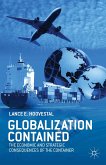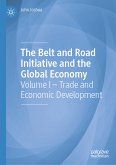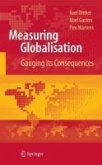In this volume, David B. Audretsch and Charles F. Bonser present a view of Globalization and Regionalization that holds that the interaction between a more open trading system and the new telecommunications and computer technology has substantially increased productivity and facilitated the fragmentation of the production process. The fragmentation of the production process has resulted in a new international organization of production. It has accelerated the globalization of national economies and has allowed firms to take advantage of low wages, wherever they are to be found, and, where important, to locate production facilities close to their customers. This expansion in international trade and production mobility has resulted in new sources of gain that contribute to the new economy. In the second chapter of this volume, Alfred C. Aman, Jr. examines whether globalization dictates new approaches to governance. The process by which public policy in England has incorporated regional government is the focus of Kenneth Spencer in Chapter 3. In the fourth chapter Lawrence S. Davidson provides an analysis of the impact of globalization on manufacturing in the US Midwest. In Chapter 5, John W. Ryan shows how there is a dual role of universities in the global economy. On the one hand, universities serve as institutions that foster globalization and reduce the isolation of regions. On the other hand, universities themselves are shaped and influenced by globalization. David B. Audretsch and A. Roy Thurik, in Chapter 6, show how globalization has led to the emergence of the strategic management of regions. In Chapter 7, Jean-Pierre van Aubel and Frans van Nispen examine the links between federalization and globalization in the European context. The impact of globalization on regulatory institutions is the focus of Montserrat Cuchillo in Chapter 8. Finally, in Chapter 9, David Eaton examines the relationship between global trade sovereignty and sub-national autonomy. Taken together, these chapters provide a compelling view that public policy must be considered in a new light in the global economy. Not only does policy have to consider global implications, but also the importance of local characteristics and regional strengths.
Dieser Download kann aus rechtlichen Gründen nur mit Rechnungsadresse in A, B, BG, CY, CZ, D, DK, EW, E, FIN, F, GR, HR, H, IRL, I, LT, L, LR, M, NL, PL, P, R, S, SLO, SK ausgeliefert werden.









